The Florida Master Naturalist Program Advisory Board (FAB for short) is a fabulous group of individuals dedicated to the present and future success of the Florida Master Naturalist Program (FMNP). The FAB consists of individuals from across the state who are either program instructors or graduates from the courses. Many of these individuals serve as volunteers in their role on the board. Each year the board meets quarterly, 3 of these meetings are virtual, and once a year we have the opportunity to get together in person, sharing experiences, our love of the program, and planning for its future.
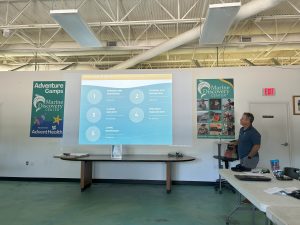
This year, our FAB in-person annual retreat occurred in November, and was held at the Marine Discovery Center (MDC) in New Smyrna Beach. As a part of our retreat, we also participate in professional development. This year the FAB learned about the Marine Discovery Center, its mission, and some of their awesome restoration projects and partnerships from their executive director, Chad Truxall. Chad also serves as the current President of the FMNP Advisory Board. MDC began offering the FMNP Coastal Ecosystem classes in 2001, and has graduated more than 800 Coastal Naturalists in the last 23 years. These individuals use this certification as nature guides, educators and rangers, as well as to become better-informed residents of coastal communities throughout Florida.
Restoration and Research at the Marine Discovery Center (MDC)
Marine Discovery Center’s current site was formerly occupied by New Smyrna Beach High School. In 2011, the site was acquired by the Florida Fish and Wildlife Foundation for the purposes of marine education and conservation. MDC was the perfect fit to operate the center. MDC celebrated it 27th anniversary this year, and over the past 13 years a lot has happened at the current site, including some of the restoration and research projects we were able to visit and learn about first hand.
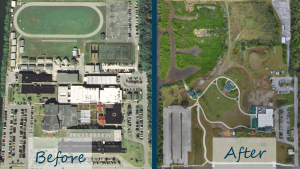
Our first stop was the Native Wildflower Garden, made possible through a grant from the Florida Wildflower Foundation and the beautiful Butterfly Garden, built by the New Smyrna Beach Men’s Garden Club. This landscape features native plants to attract butterflies as well as a relaxing shaded seating area for butterfly viewing. Native plants are adapted to the Florida environment, needing less water and little to no fertilizer, and provide habitat for our Florida wildlife. Surprises await visitors to these gardens, perhaps encountering a beautiful wildflower in bloom, a gopher tortoise quietly munching on his breakfast, a butterfly fluttering by, or one of the beautiful mosaics created and donated by Chad’s mother-in-law.
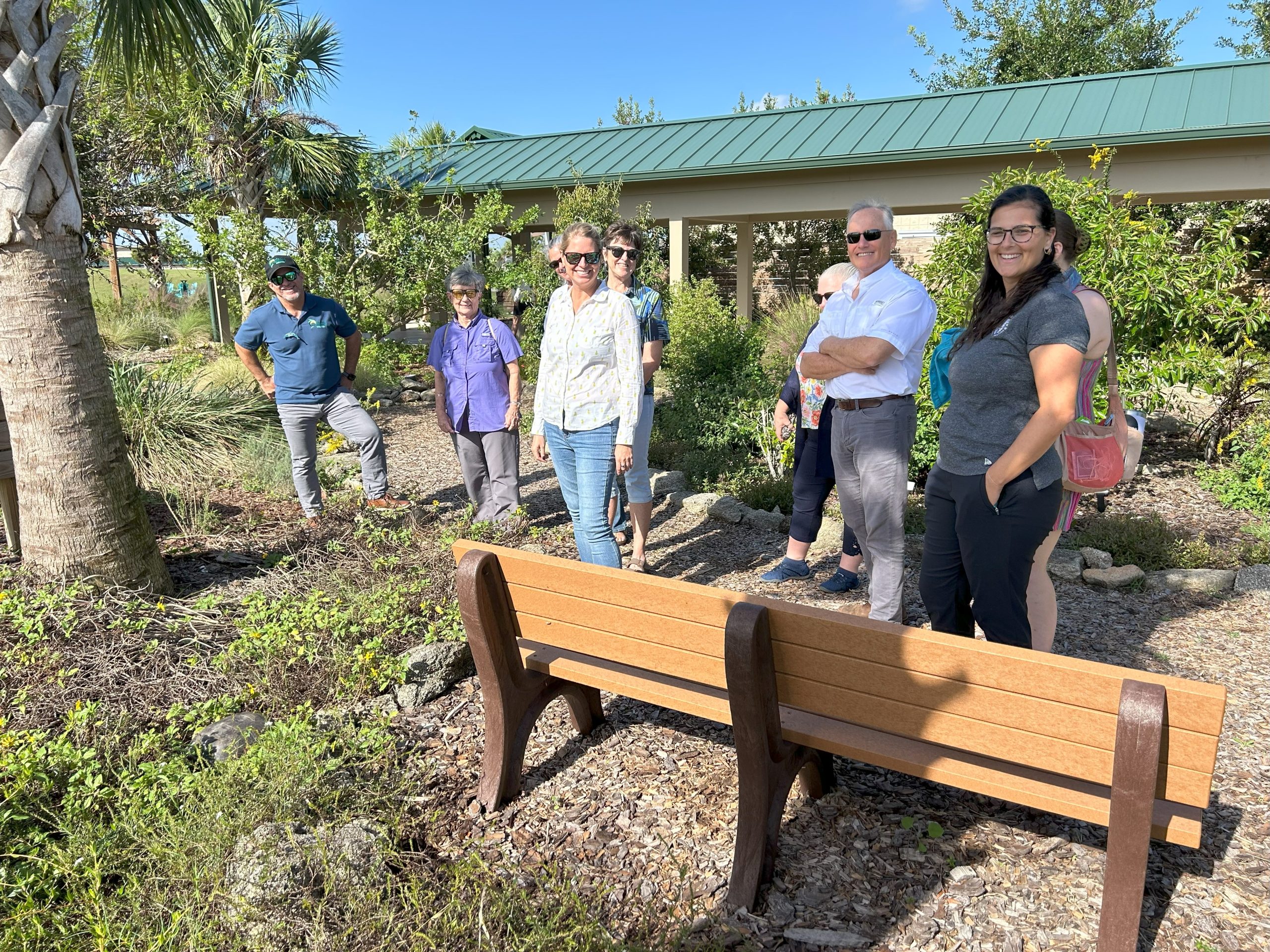 MDC’s demonstration garden
MDC’s demonstration garden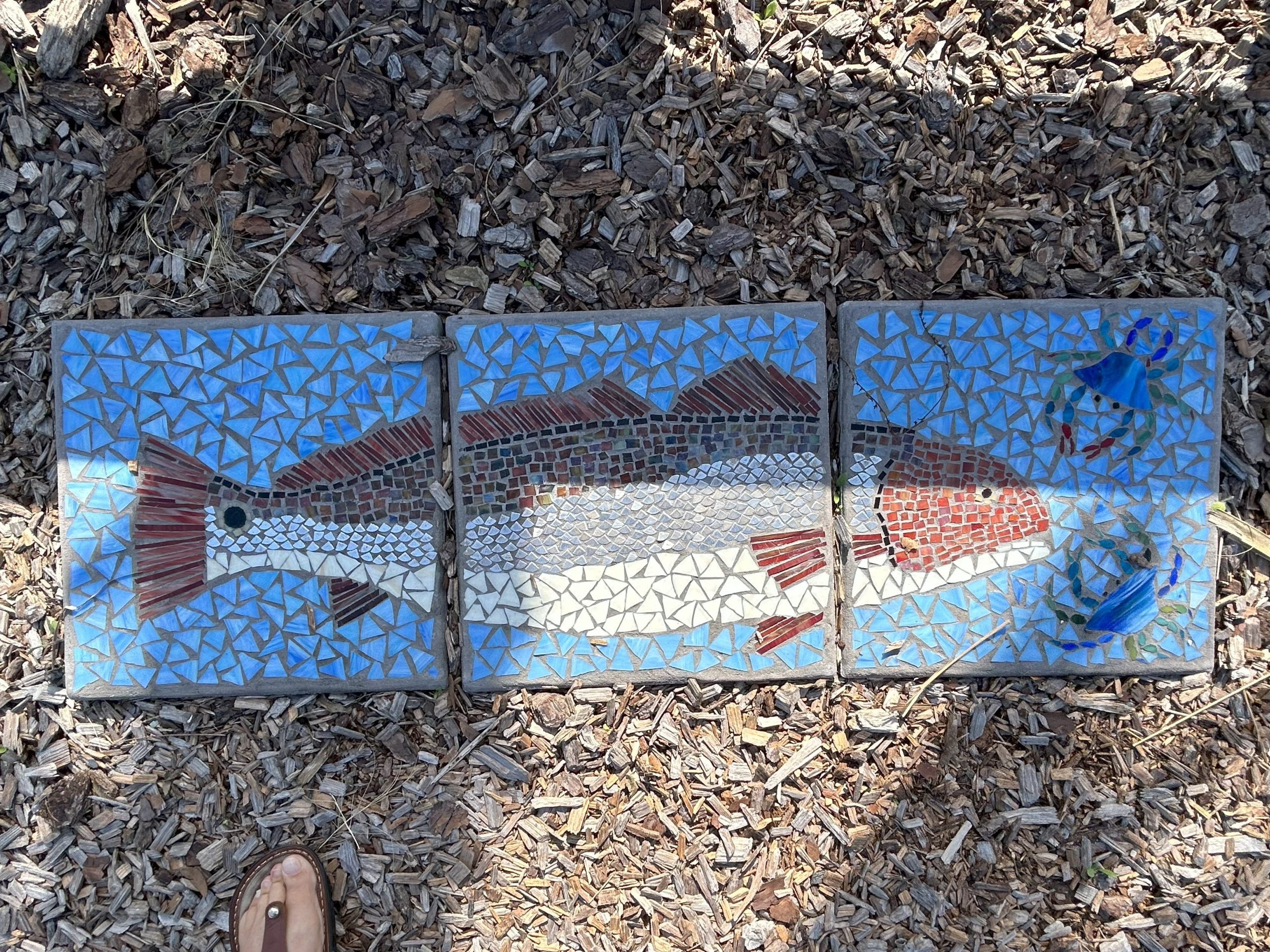 Mosaic in garden
Mosaic in garden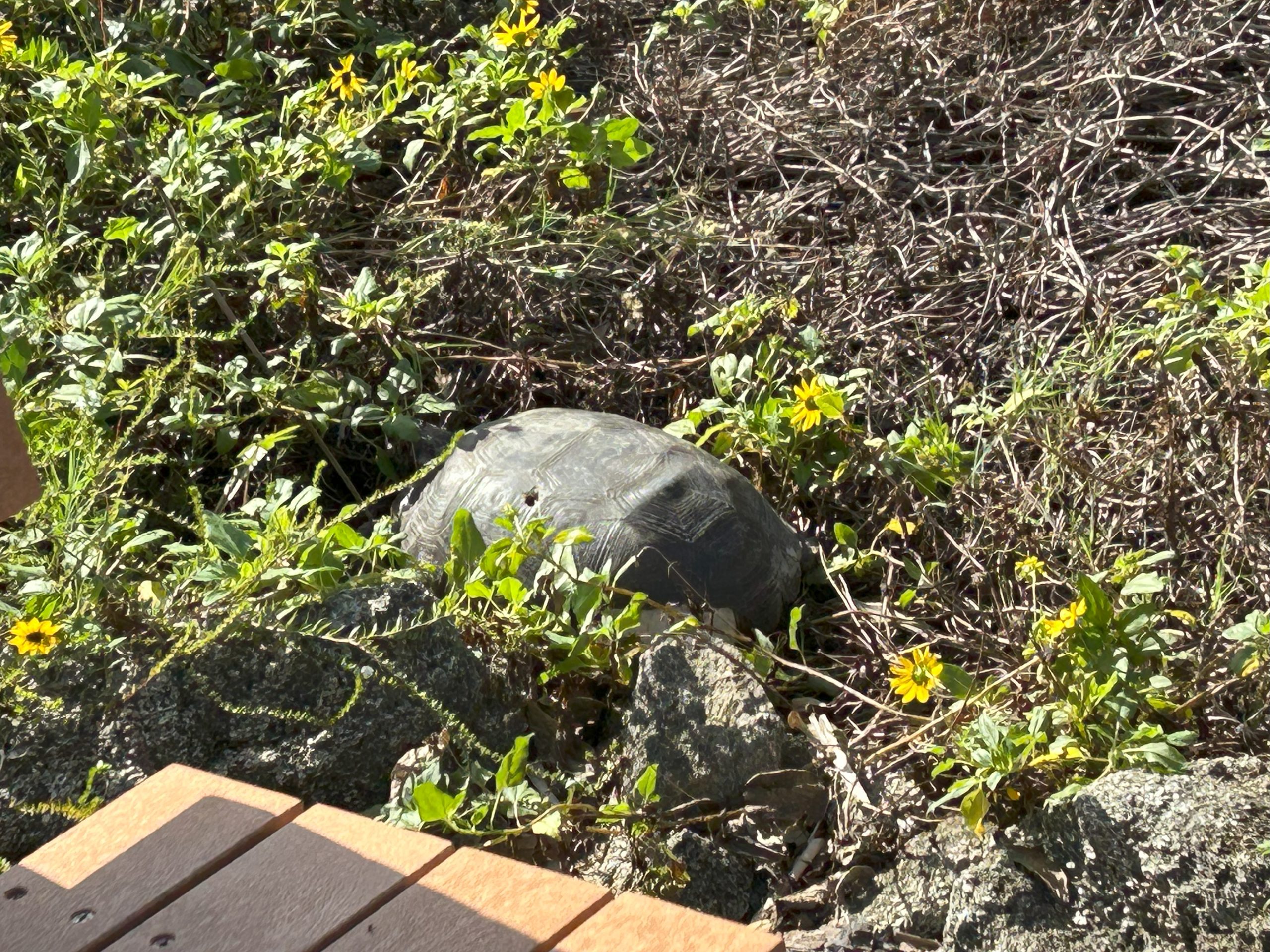 Gopher tortoise in native plant garden
Gopher tortoise in native plant garden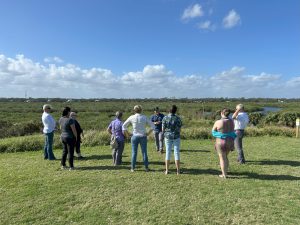
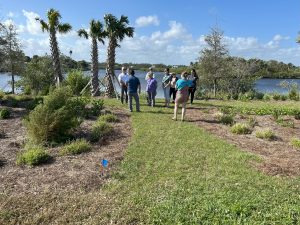
We continued along the walking trail, to view the latest restoration project completed in July 2024. 32,000 square feet of parking lot have been converted into a living shoreline along the edge of the 5-acre salt marsh. Not only did this project decrease the amount of impervious pavement, it creates a buffer between the existing pavement and the salt marsh. We then summitted Mount Morgan, which provides a wonderful view of New Smyrna Beach and beyond. In 2014, this 30.1 foot high mound was made from the material dredged from the surrounding area that was once a track and football field. The previous sports field has now become a vibrant and vital mangrove forest which provides opportunities for kayaking and wildlife viewing. You can even spot the Ponce Inlet Lighthouse from the top!
Allowed a rare behind-the-scenes tour of some of their new collaborative projects, we learned about an aquaculture project where they are growing out clams and seagrass that will be used to repopulate the Indian River Lagoon and surrounding waters. Clams, like oysters, are filter feeders and not only provide a food source and structure within the underwater environment, but also help improve water quality. Marine Discovery Center is also working with partners and volunteers to grow mangrove seedlings and build artificial reef structures for oyster restoration which are being used within their living shoreline projects.
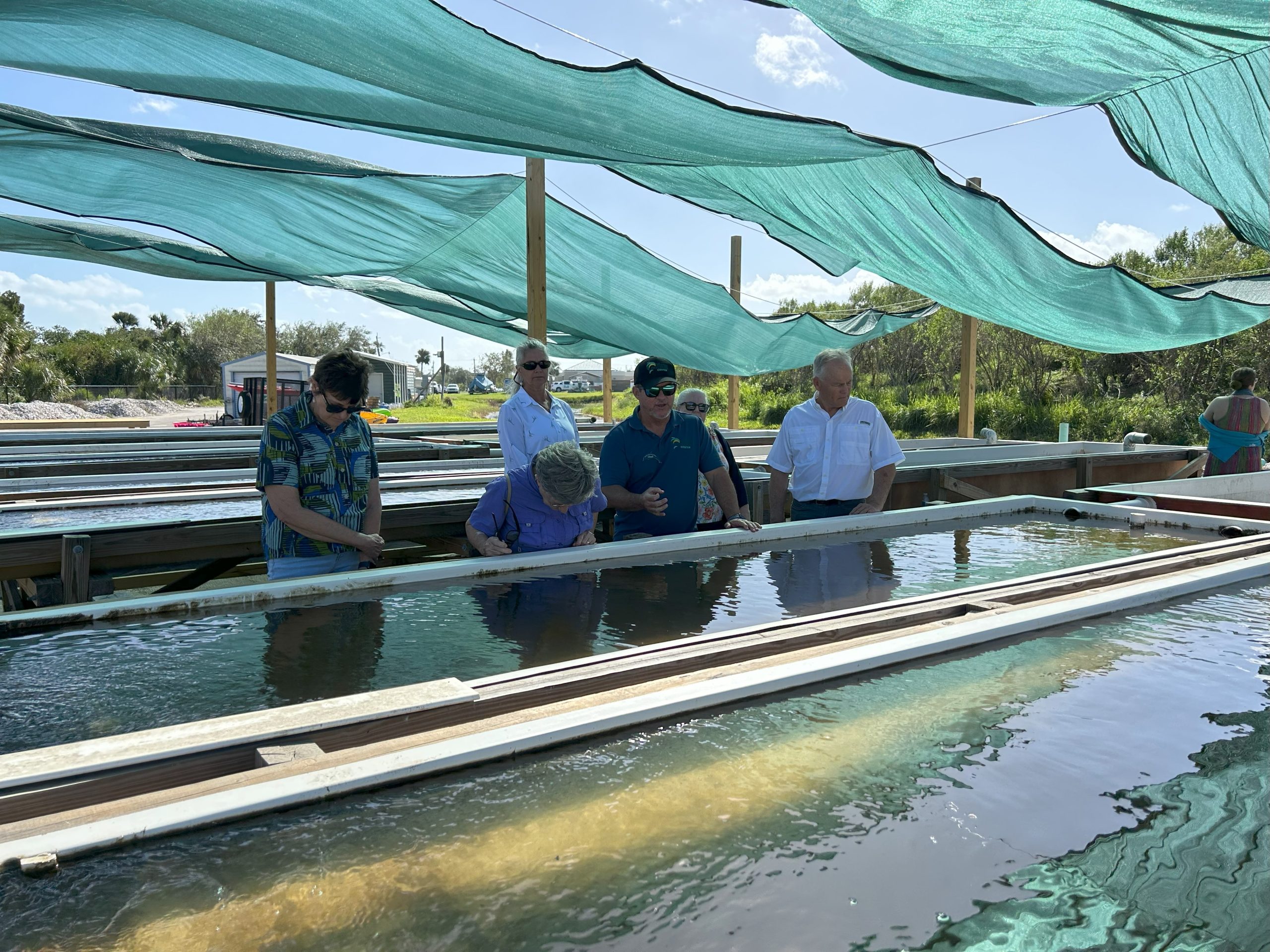 Clam and seagrass aquaculture project
Clam and seagrass aquaculture project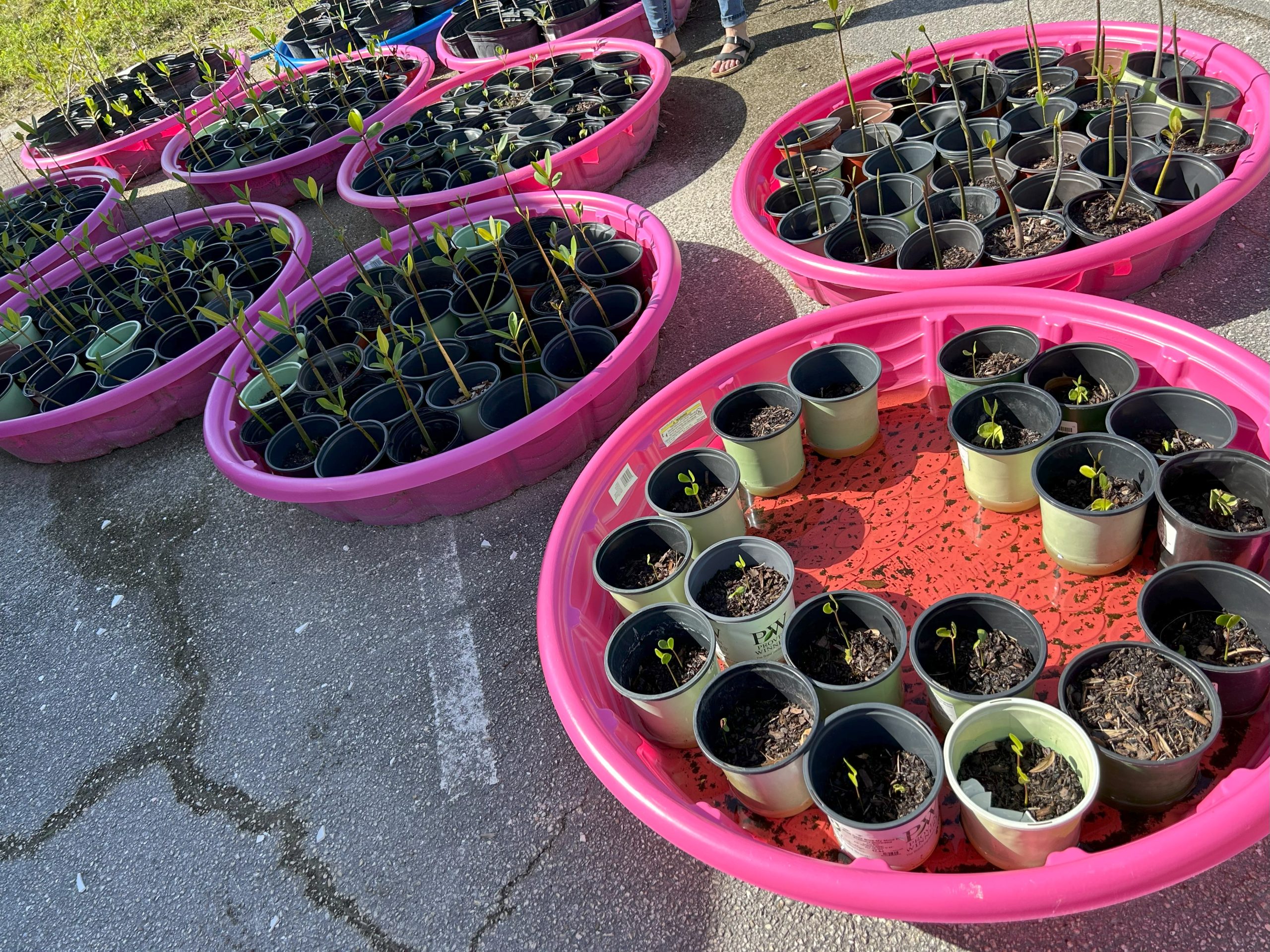 Mangrove seedling project
Mangrove seedling project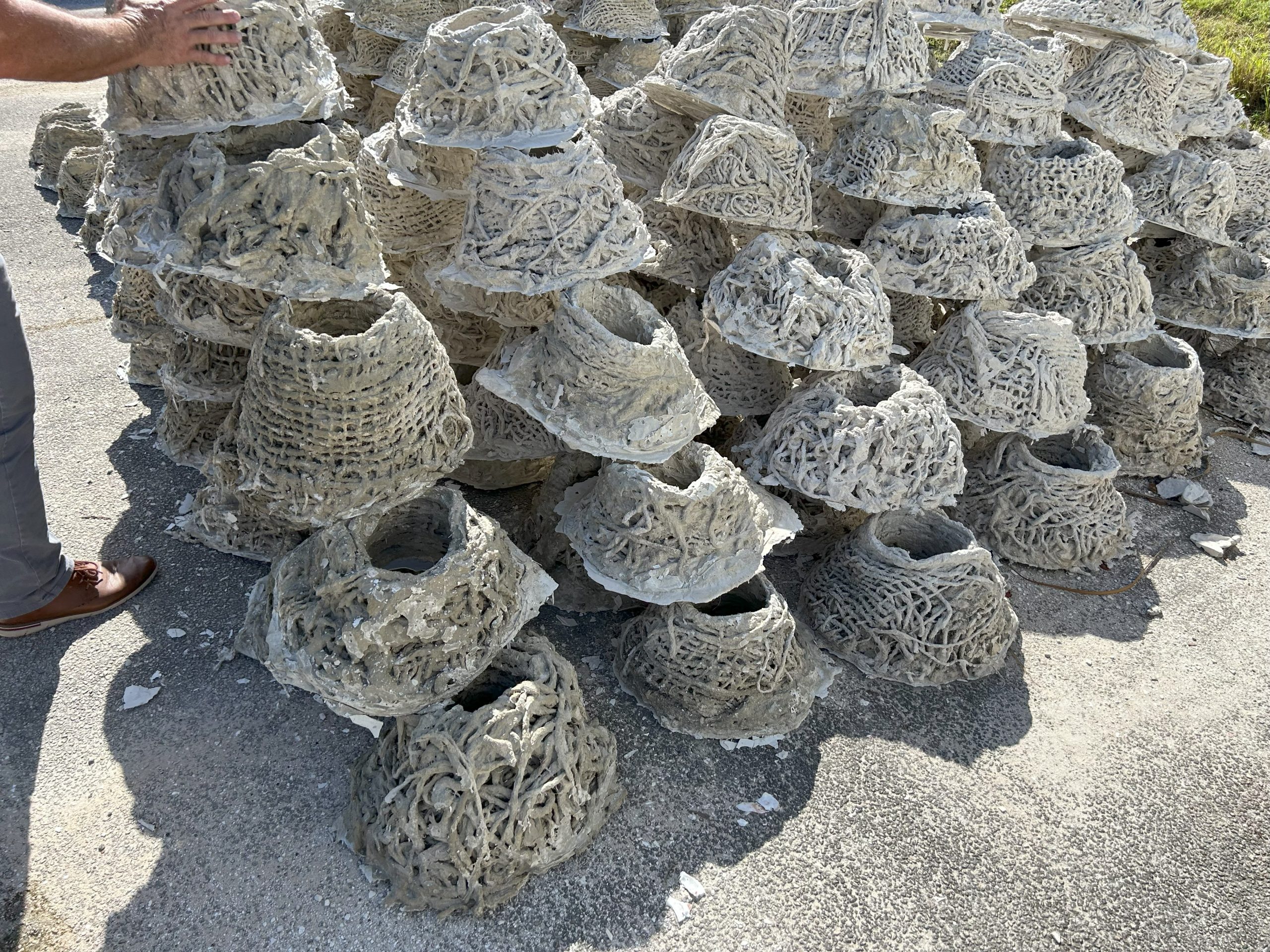 Oyster restoration project
Oyster restoration project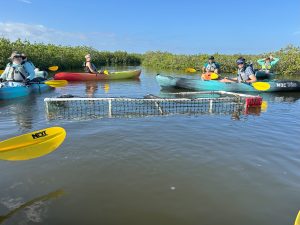
We completed our very full first day by meeting at the top of Mount Morgan to watch the sun set over the 5-acres of salt marsh and mangrove forest that once was the previous football field. The next morning, we kayaked through the mangroves witnessing wading birds, shoreline restoration projects, an underwater forensic research project, and so much more! Marine Discovery Center is open to the public. Learn more about their variety of educational experiences and tours for all ages.
Not only did the FMNP Advisory Board strategically plan for the upcoming year and start discussing the program’s 25th anniversary, which will occur in 2026, but we had an amazing opportunity for professional development focused on coastal ecosystem restoration. This annual retreat also provides important time to network with and learn from other Florida Master Naturalist Program instructors and graduates, Dr. Marty Main, program lead, and Caitlin Robinson, program coordinator.
Join us for a FMNP course!
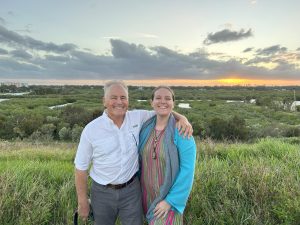
The Florida Master Naturalist Program (FMNP) is an adult education program developed by the University of Florida and provided by participating organizations. FMNP training will benefit any persons interested in learning more about Florida’s environment, seeking educational contact hours, or wishing to increase their knowledge for use in education programs as volunteers, employees, ecotourism guides, and others. The mission of the Florida Master Naturalist Program (FMNP) is to promote awareness, understanding, and respect of Florida’s natural world among Florida’s citizens and visitors. The FMNP teaches those who teach others about Florida’s unique ecosystems and wildlife.
UF/IFAS Extension Sarasota County teaches all 11 FMNP courses spread out over 2-3 years. The 3 core courses are 40-hours each and focus on the main ecosystems in Florida: coastal, freshwater, and uplands. 8 other courses provide 24-hours each of education, hands-on experiences and field trips focused on specific skills or topics ranging from invasive plants, environmental interpretation, wildlife monitoring, and ecosystem restoration. Other partners teach FMNP courses throughout the state, courses can be taken in any order at any location. To learn more about current offerings visit https://conference.ifas.ufl.edu/fmnp/.
Dr. Katherine Clements, ecology and natural resources educator, UF/IFAS Extension Sarasota County is a FMNP lead instructor and is President Emeritus on the FMNP Advisory Board.
 3
3
